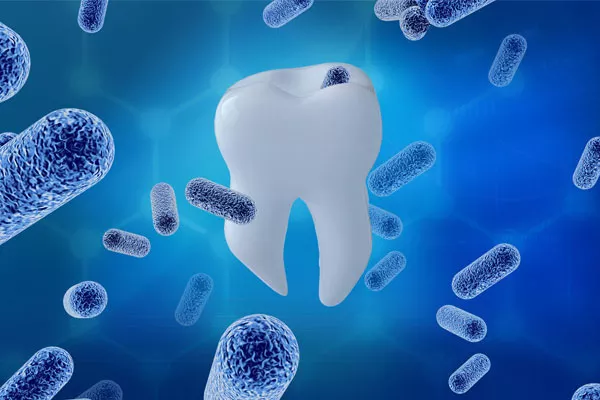Periodontal disease, also known as gum disease, is primarily caused by the accumulation of bacteria in the mouth. This bacterial growth leads to inflammation and infection of the gums, which can damage the tissues supporting your teeth. Periodontal disease generally progresses in stages, from mild gingivitis to more severe periodontitis, and it is influenced by several factors.
What is Periodontal Disease?
Periodontal disease is an inflammatory condition that affects the gums and supporting structures of the teeth. It is caused by bacteria that accumulate on the teeth and gums, leading to the formation of plaque and tartar. Over time, the bacteria can cause inflammation and damage to the gums, leading to symptoms such as bleeding, swelling, and tenderness.
If left untreated, periodontal disease can progress to more severe stages, including periodontitis, which can lead to tooth loss and other complications.
Causes of Periodontal Disease
Periodontal disease is caused by a combination of factors, including:
1. Poor Oral Hygiene: Poor oral hygiene is the most common cause of periodontal disease. When plaque and tartar accumulate on the teeth and gums, they provide a breeding ground for bacteria that can cause inflammation and damage to the gums.
2. Lifestyle Habits: Lifestyle habits such as smoking, alcohol consumption, and poor nutrition can also contribute to the development of periodontal disease. Smoking, in particular, can interfere with the healing process and increase the risk of infection.
3. Genetics: Genetics can also play a role in the development of periodontal disease. Some people may be more susceptible to the condition due to genetic factors.
4. Medical Conditions: Medical conditions such as diabetes and autoimmune disorders can also increase the risk of periodontal disease. These conditions can affect the body’s immune system, making it more difficult to fight off infections.
How Lifestyle Factors Contribute to Periodontal Disease
1. Poor Oral Hygiene: Poor oral hygiene is the most common cause of periodontal disease. When plaque and tartar accumulate on the teeth and gums, they provide a breeding ground for bacteria that can cause inflammation and damage to the gums. Brushing and flossing regularly can help remove plaque and prevent the development of periodontal disease.
2. Smoking: Smoking is a significant risk factor for periodontal disease. It can interfere with the body’s immune system, making it more difficult to fight off infections. Smoking can also reduce blood flow to the gums, making it more difficult for the gums to heal.
3. Alcohol Consumption: Alcohol consumption can also contribute to the development of periodontal disease. Heavy alcohol consumption can weaken the immune system, making it more difficult to fight off infections. Alcohol can also cause dehydration, which can lead to dry mouth, a condition that can contribute to the development of periodontal disease.
4. Poor Nutrition: Poor nutrition can also contribute to the development of periodontal disease. A diet that is high in sugar and processed foods can increase the risk of plaque buildup and inflammation in the gums. A diet that is low in vitamin C can also increase the risk of periodontal disease, as vitamin C is essential for healthy gums.
Other reasons
1. Hormonal Changes: Hormonal changes that occur during puberty, pregnancy, and menopause can make the gums more susceptible to inflammation and infection, increasing the risk of periodontal disease.
2. Medications: Certain medications such as anticonvulsants, immunosuppressants, and blood pressure medications can cause dry mouth, which can increase the risk of periodontal disease. Some medications can also cause overgrowth of gum tissue, which can make it more difficult to clean the teeth and gums properly.
3. Age: As we age, the risk of periodontal disease increases. This is partly due to the fact that the gums naturally recede as we age, exposing the roots of the teeth and making them more susceptible to infection.
4. Stress: Stress can weaken the immune system, making it more difficult to fight off infections. Chronic stress can also lead to clenching or grinding of the teeth, which can cause damage to the gums and supporting structures of the teeth.
5. Systemic Diseases: Systemic diseases such as heart disease, diabetes, and rheumatoid arthritis have been linked to an increased risk of periodontal disease. This is thought to be due to the fact that these conditions can weaken the immune system and make it more difficult to fight off infections.
6. Poorly Fitted Dental Appliances: Dental appliances such as dentures and braces that do not fit properly can cause irritation to the gums, leading to inflammation and infection.
Conclusion
Periodontal disease, also known as gum disease, is a common condition that affects the gums and supporting structures of the teeth. It is caused by a combination of factors, including poor oral hygiene, lifestyle habits, genetic predisposition, hormonal changes, medications, age, stress, systemic diseases, and poorly fitted dental appliances.
Poor oral hygiene is the most common cause of periodontal disease, as plaque and tartar accumulation on the teeth and gums provide a breeding ground for bacteria that can cause inflammation and damage to the gums. Lifestyle factors such as smoking, alcohol consumption, and poor nutrition can also contribute to the development of periodontal disease by weakening the immune system and increasing the risk of plaque buildup and inflammation in the gums.
Other factors such as hormonal changes, medications, age, stress, systemic diseases, genetics, and poorly fitted dental appliances can also increase the risk of periodontal disease. By maintaining good oral hygiene, making healthy lifestyle choices, and seeking regular dental care, it is possible to prevent the development of periodontal disease and maintain good oral health.
Related topics:

